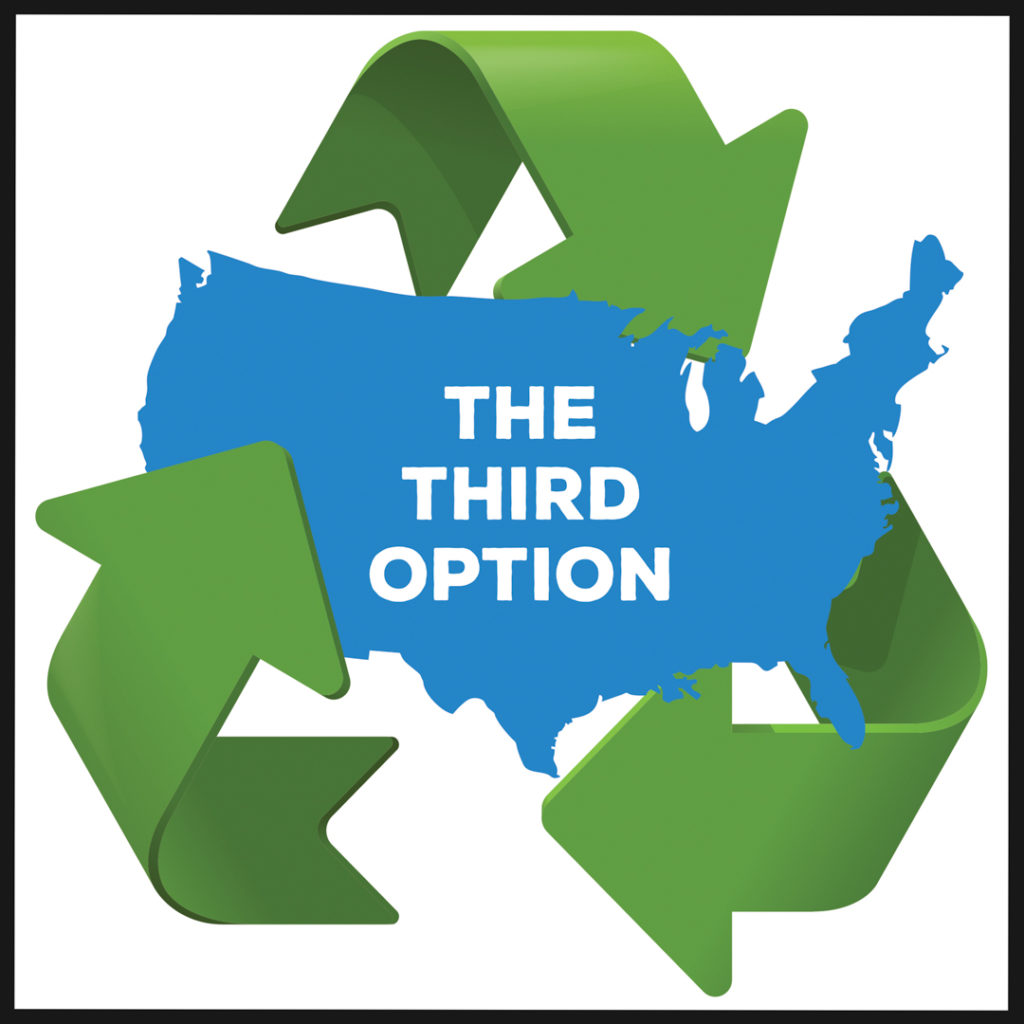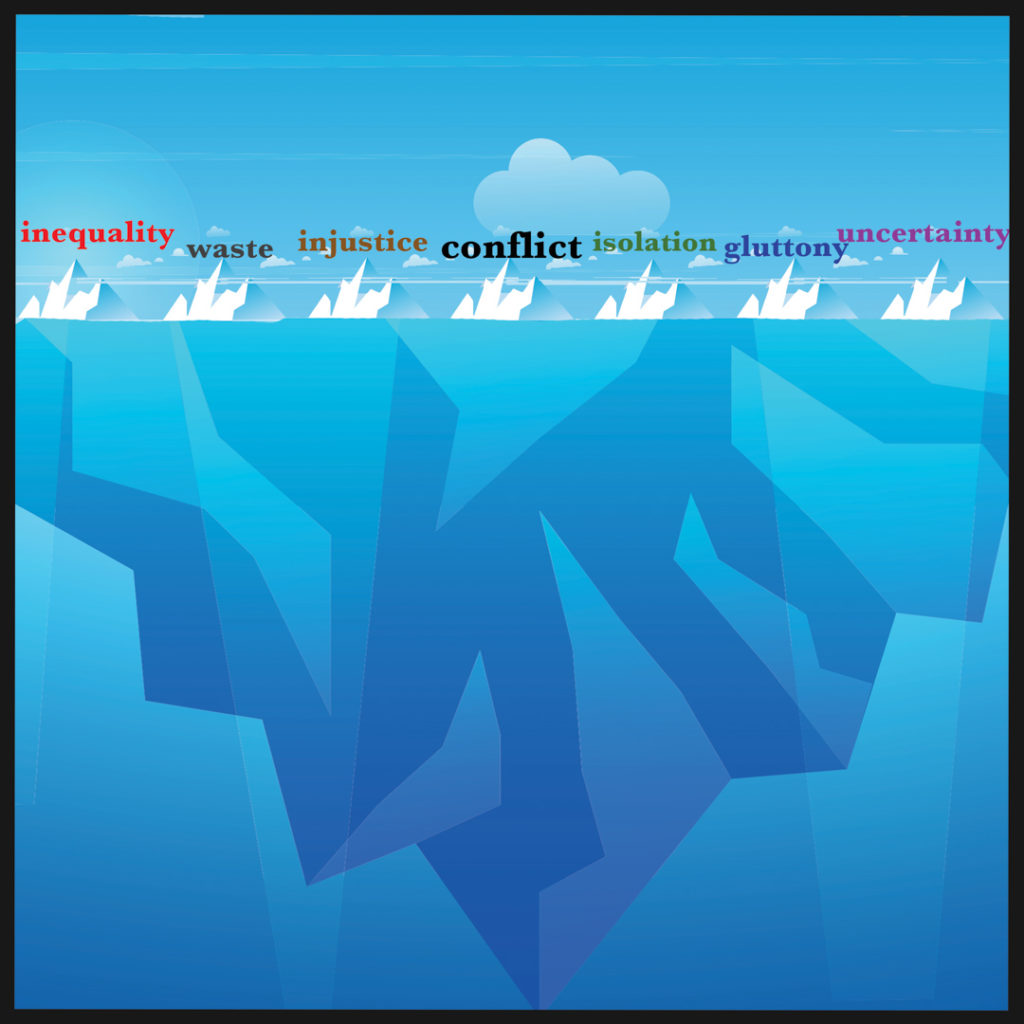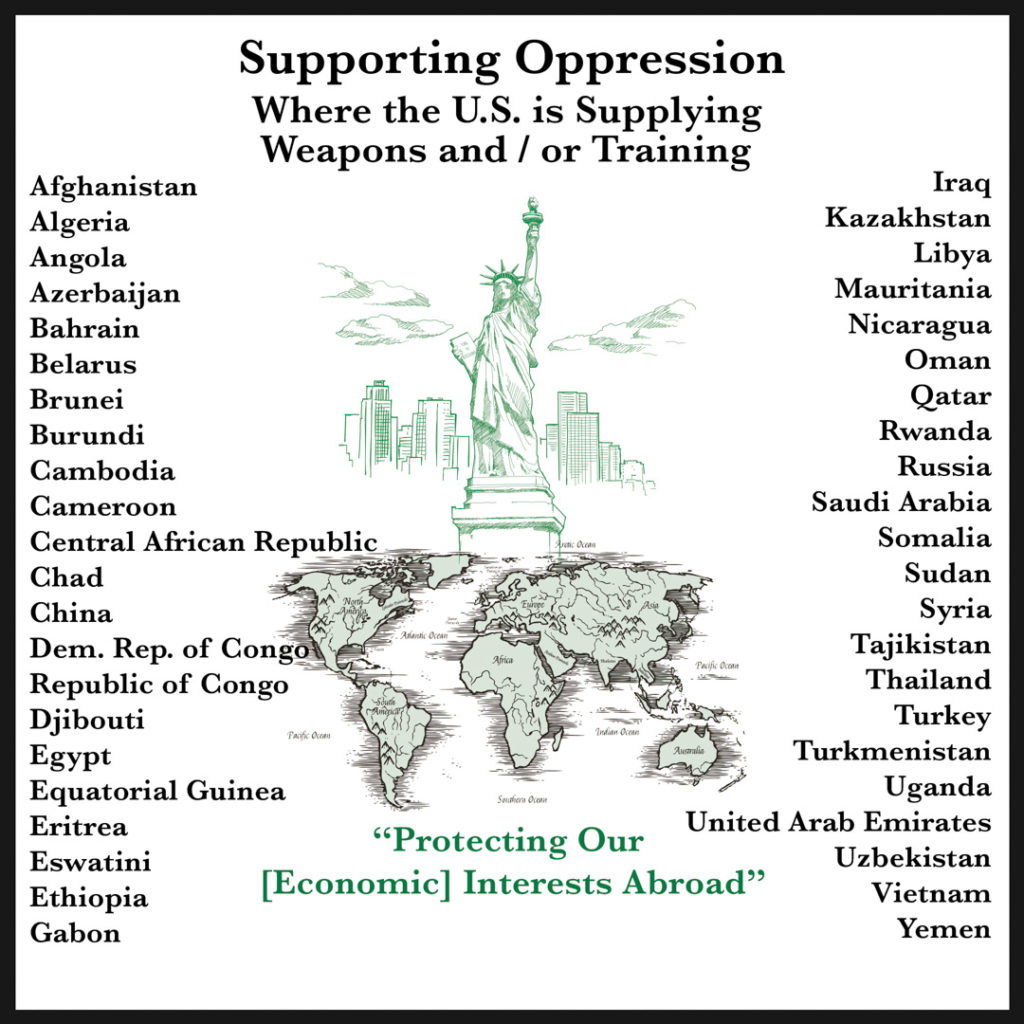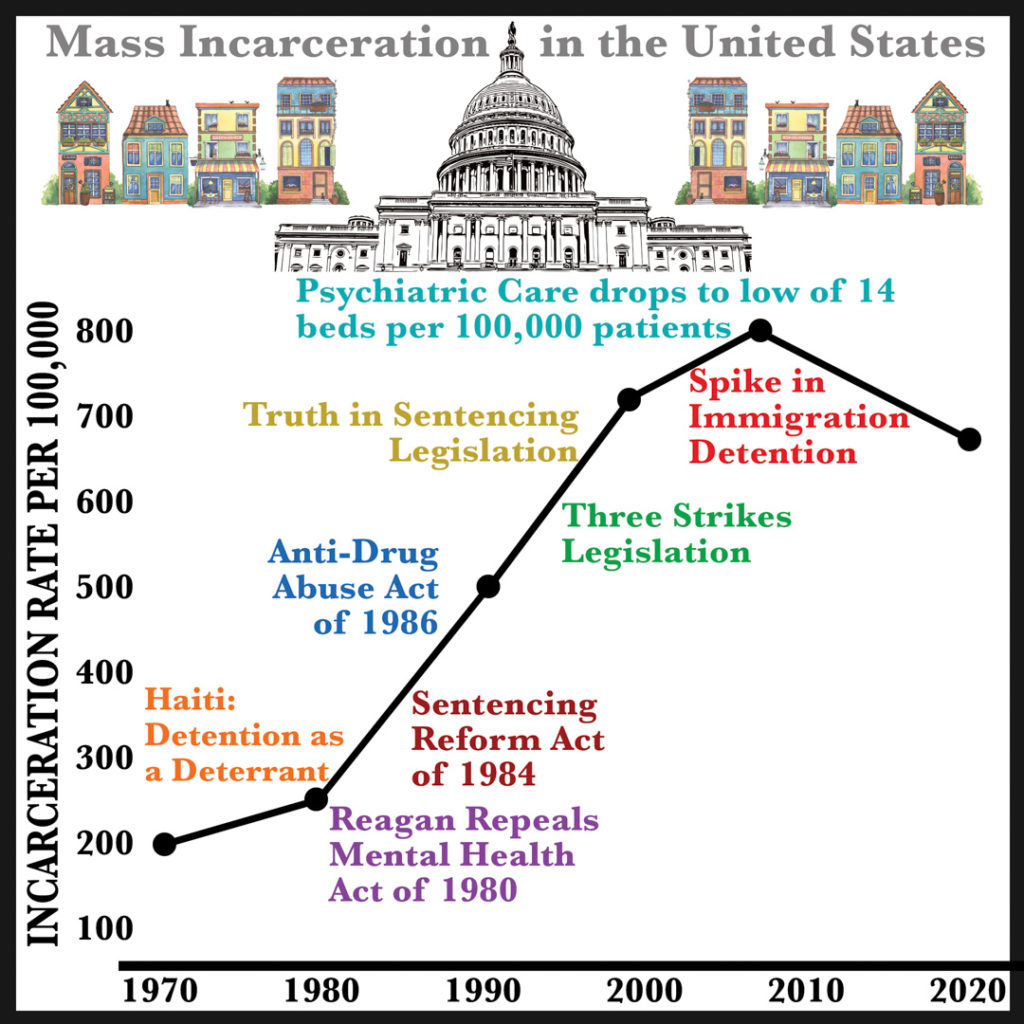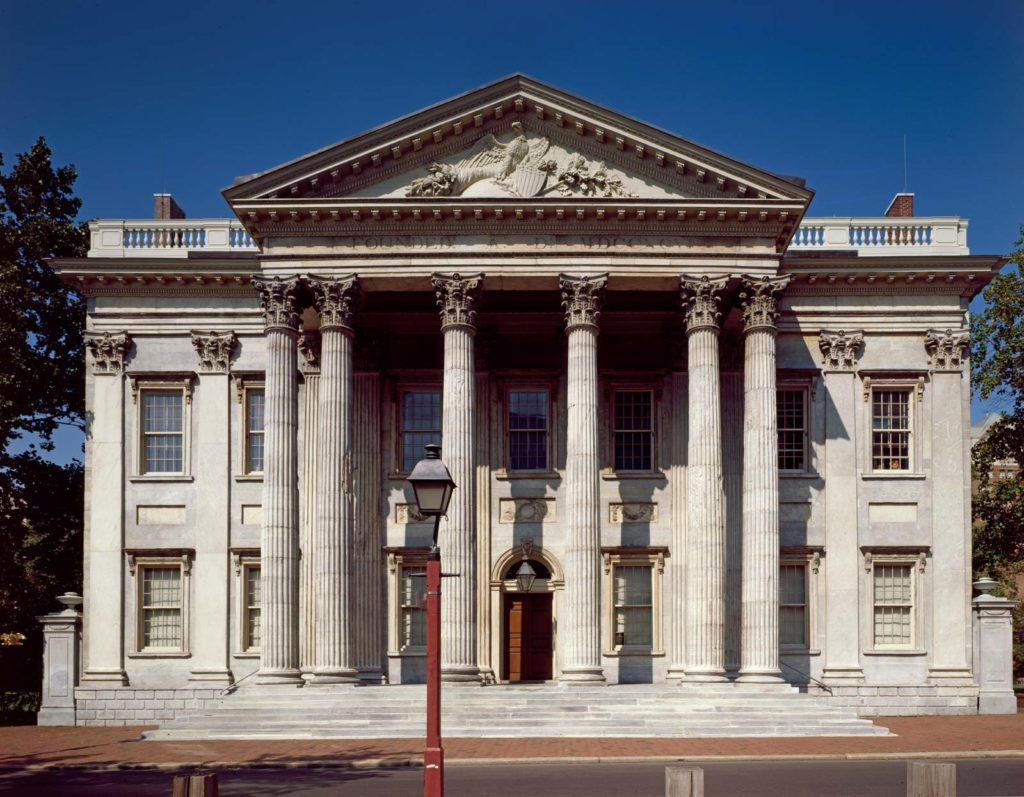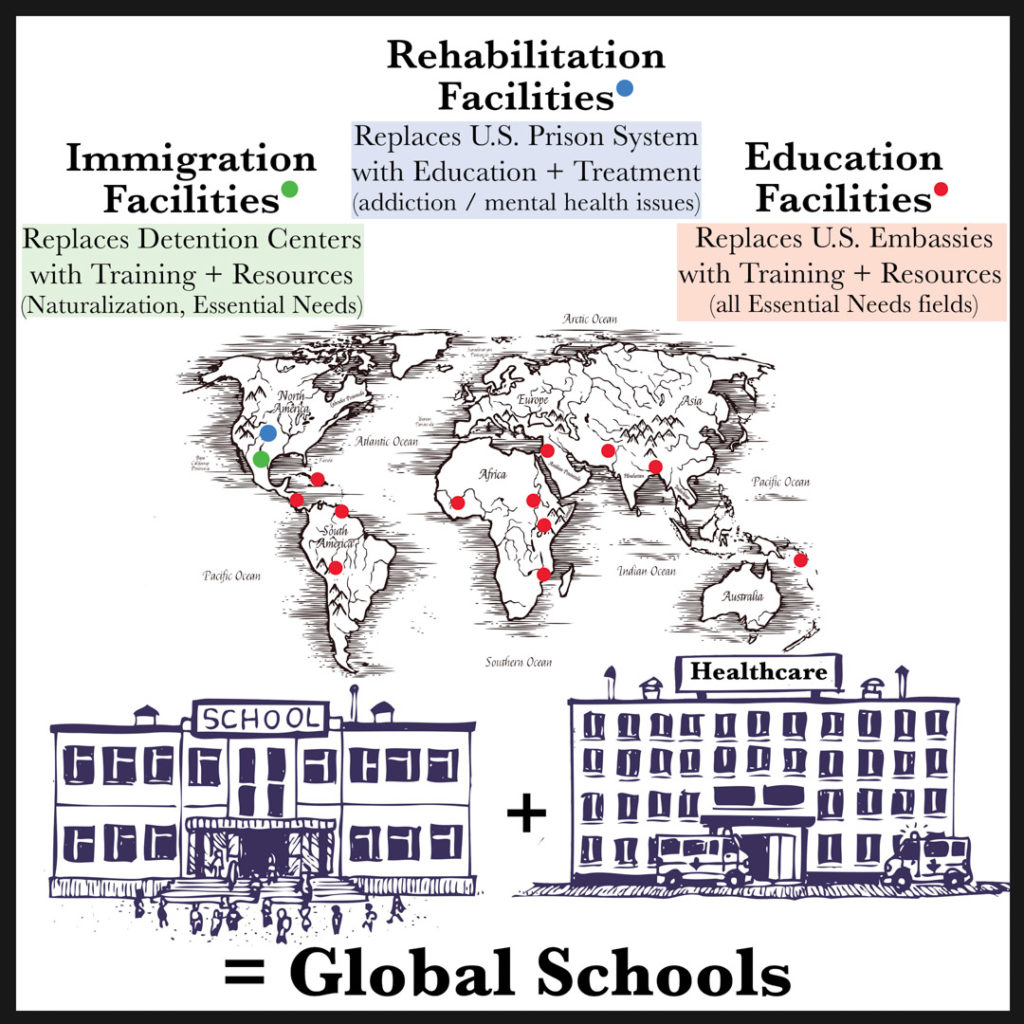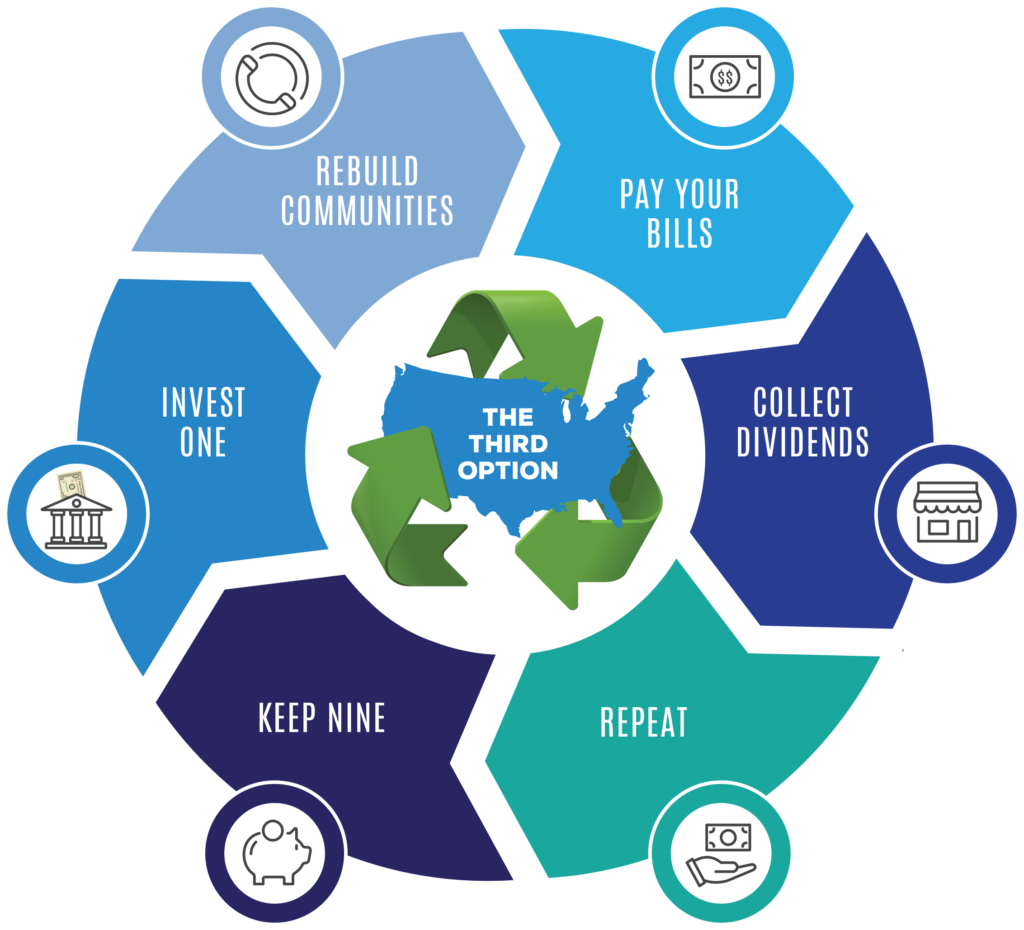Imagine giving everything you have, every day (we think you can). Now imagine getting fully compensated for it.
The Forebrain Underground Is The Third Option’s Blog
The Third Option represents:
- a philosophical argument which asserts that human manifestations of Power and Control are mutually exclusive events, therefore an environment based purely on Power (aka Democracy) could theoretically exist outside the boundaries of Control (aka Oppression).
- a thought experiment used to reason how modern society would structure itself within such an environment,
- a societal operating system upgrade based on this thought experiment, and
- a political organization dedicated to installing this societal operating system upgrade.
The Third Option (T3O) was founded in 2017 by Robert Simmons. By 2020, The Third Option also established the Forebrain Underground, an online magazine assigned to:
- chronicle and interpret the current socioeconomic environment from a democratic perspective, in order to demonstrate to Americans that they are not actually living in a Democracy,
- tap the common roots that underlie all ideological viewpoints, in order to frame arguments that conceptually ring true from every vantage point,
- highlight various people, practices or policies that either sustain oppression or promote Democracy, in order to educate the public on how to tell the difference,
- breakdown Third Option policies, in order for the public to better understand the logic behind them, and
- Begin to form coalitions with like-minded citizens. Groups that seek more Certainty, Fairness, Inclusivity, or Sustainability are most likely to align with The Third Option agenda; these might include (but are not limited to) areas of Prison Reform, Restorative Justice, Tax Reform, Anti-Consumerism, Economic Democracy, Libertarianism, Green Party politics, Social Democracy, Affordable Housing, Zero-Energy Building, Passive Houses, Green Building, Regenerative Agriculture, Sustainable Agriculture, Vertical Farming, Hydroponics, Public Banking, Science, Social Science, Applied Science, Biomimetics, Plastic (and other) Recycling, Sustainable Energy, Small Modular Reactors, HVDC Technology, Personal Rapid Transit, Walkability, Mixed-Use Development, Fiber-Optic Cable, , HDPE Pipe, Environmental Technology, Preventive Healthcare, Single Payer Health Systems, and Apprenticeship Learning Models.
Table of Contents[Hide][Show]
Ideology
Philosophical
The Third Option believes that human societies will continue to be conflicted until people choose a single philosophical foundation upon which to build, and that the only logical choice is a foundation that aligns itself with the natural order of the universe. In essence, people would go further if they did not fight against the underlying current, but instead attempted to ‘go with the flow’. The Third Option believes that each person would do well to reason about the larger picture of the universe, in order to draw their own conclusions, but in the meantime has gone forward with their proposal for a societal foundation built upon the following assertions:
- The universe was created through a singular surge of Power –not a top-down measure of Control—and has since been shaped by time and the environment into which it came to exist. Similarly, people are created from the singularity of their birth, and are subsequently shaped by time and the environment into which they come to exist.
- Power is measured by how much one gives (empowers, inspires)or gives off (through effort, passion, etc.); Power emanates from a single source and expands forward in time. Control is measured by how much one manages to take, destroy, possess, extract or alter; Control is exerted from the top down, and often drains, redirects, or suppresses the Power of others.
- All earth-bound living organisms are in essence descendants of the same organism, which has taken on many different forms throughout time, representing the many changes in environment that have occurred (i.e., through its will to exist, life finds a way to alter itself –or adapt—in order to navigate whatever environment is present).
- Per the basic survival strategies of fight, flight, feed and fornicate, organisms will seek to dominate (fight), consume (feed) and replicate more and more, until the natural environment forces them to submit (flight), whereupon a balance is reached. Until some ‘natural’ mechanism comes along to significantly slow human consumption, people will continue their innate predisposition to consume the entire planet, recently accelerated through the effective catalyst of ‘economic growth’. From the point of view of Power, any self-imposed or ‘Controlled’ environment represents Unnatural Selection. Within a human pyramid of top-down Control, more pressure is necessarily applied to the base which supports it; not only has this model proven destructive to the base of people upon which economic growth depends, but to the ‘ecosystem’ itself, upon which human existence was founded, and intrinsically depends.
- Consumerism represents the natural predisposition of any non-reasoning organism; within humans, it is a job relegated to their hindbrain. The human forebrain does have the theoretical capacity to reason; it is important to distinguish, however, that inventing ‘reasons’ to justify one’s choices is not the same as ‘reasoning’ about what choices to make. The Third Option maintains that when humans are forced to make a choice, it is predominantly reactive (to dodge an impending disaster, for example), and cannot help but employ traditional methods of non-reasoning Control. Through the use of proactive choice, The Third Option believes that an environment of Democracy could be established, and because all living organisms naturally adapt to whatever environment is present, each person’s choice to Control others would naturally dissipate, rather than continuing to employ measures of Control to somehow extinguish Control, which is a non-reasoning strategy, though quite logical within a Control-based paradigm.
- Power and Control are mutually exclusive choices; to decide at any moment whether to exert Power or extract some measure of Control. Together, they represent two sides of the same coin, and each person can be seen to have possession of such a coin. Within a conceptual environment of Democracy, Freedom becomes each person’s democratic prerogative to reactively let ‘human nature’ flip the coin, or proactively choose to do so themselves. When people choose for themselves, they are exercising their Liberty, which is a more evolved concept than Freedom, because it allows for the potential to reason that Control cannot realistically extend beyond oneself, per the reciprocal obligation Liberty affords each person. The best Liberty can grant a reasoning person is something between Self-Control and Self-Actualization. Because Self-Actualization is a proactive choice (a singular decision to live a particular lifestyle), it is arguably more efficient and effective than reactive attempts to police oneself (self-control), or continuing to relinquish Control to societal institutions, allowing them to exert Control over the general population.
Communication Theory
This theory posits that humans fall within the domain of eukaryotic organisms that (like fungi) are born communicators, which means they naturally network and ‘transmit what they receive’. Humans communicate through the universal language of emotion; as with all languages, many emotional communications are lost in translation because of poor listening comprehension. Violence, for example, transmits an emotional message that falls on deaf ears within an environment of Control; by continuing to utilize the tradition of legalized (and naturally reactive) structural violence as a tool of perceived deterrence, violence is only reinforced. Because the presumed laws of communication dictate that humans must transmit whatever they receive, various forms of violence—from verbal abuse and bullying, all the way up to homicide and suicide—are simply attempts to communicate the feelings of Powerlessness that have been passed onto these individuals; whether they choose to fight their Powerlessness (by Controlling others) or flee from it—through manifestations of self-abuse—depends on several other factors. The Third Option believes that when individuals suffering emotional trauma choose to suppress (or not communicate) it, it most likely erodes their physical and mental health, again because humans are naturally disposed to transmit what they receive, no matter how toxic the message. Further understanding of the Mirror Neuron System (MNS) will validate emotions as a language and empathy training as the way to reinstate this language, meanwhile confirming that Control and Violence are communicating a similar message of perceived Powerlessness.
Applied Democracy:
The Third Option asserts that the United States has never been a true functioning Democracy. In order to form one, a fundamental understanding of people must first be established, in order to empower an environment for people –and Democracy—to flourish. The Third Option suggests four fundamental axioms to guide this Applied Democracy: Certainty, that leads to Inclusivity, that leads to Fairness, that leads to Sustainability.
- Life is a continual struggle to make Certainty out of Uncertainty.
- Inclusivity (our need to belong) is the survival strategy of networking organisms, in order to maximize Certainty.
- Fairness is a social strategy to maintain Inclusivity (and thus Certainty) as societal agglomeration occurs; without it, factions will form, per our innate drive to safeguard Certainty above all else.
- Sustainability is a proactive (and thus advanced) survival strategy, used to maintain long-term Certainty
Certainty / Uncertainty Paradox
This theory maintains that early human contact between parent and child transmits the emotional ‘coding’ necessary for connection or disconnection to others; it reinforces Certainty or Uncertainty, which fosters Inclusivity or Isolation, that aids in either developing a sense of Fairness or stunting emotional development so that advanced concepts like Fairness or Empathy become developmentally impaired. Within this paradox, Certainty leads one toward Power, and Uncertainty leads toward Control. The paradox lies in the fact that those in Control are in fact emotionally incapable of leadership by any Democratic standard, having been emotionally stunted early in life. In a true Democracy, where Power and Control have been properly defined, people would only support Control in a factionalized environment, where perceived unfairness bends similarly powerless people to support a leader with potential Control issues.
The theory further maintains that depriving an individual of emotional connection early in their development is akin to cutting off their emotional air supply, creating a feeling similar to drowning or asphyxiation, which represents heightened Uncertainty. This will result in an individual reactively attempting to secure the space around themselves, in classic fight / flight response. Some fight to Control their feelings of Uncertainty, through oppressive behavior deemed either legal or illegal; others flee their feelings of Uncertainty, through various forms of addiction. Through the more aggressive abuse of Adverse Childhood Experiences (ACEs), more virulent forms of Control may surface. The concept of codependency speaks to the lack of Power exchanged early in childhood development; where no Power (Certainty) is transferred, Control becomes an individual’s attempt to draw Power from others, in order to not emotionally drown in their own Uncertainty.
Unnatural Selection
This theory reasons that humanity’s overly compulsive drive to Control the natural environment is evidence of the desperate Uncertainty people still feel inside, regardless of their socioeconomic status. Throughout history, Uncertainty has led to policies of forced assimilation, ethnic cleansing, genocide, incarceration, caste systems, and more. Through humanity’s innate eukaryotic drive to transmit what they receive, the ripples of Uncertainty –the driver of Control and Oppression—have spread out through time as a communicated warning that unfortunately, no one in Control will likely address, for fear of losing Control (see Catch-22). Thus, people are destined to exist within a feedback loop where Control begets more Control; currently, those in Control have touted a theory of creative destruction as a strategy for human progress; Applied Democracy is the proposed antidote, in order to slow and eventually mitigate the transmission of this anomaly. Democracy originally rose out of the objection and rejection of Control as the natural order of the universe; Power, given fairly and inclusively to everyone, is a more efficient and effective way to provide Certainty, and stave off the toxic effects of a misunderstood developmental disorder that perpetuates the human need to Control.
Socio-economical
The Third Option views the current socio-economic system as ‘Capitalism’s version of Democracy’, where democratic forms of Liberty, Freedom, Justice and Equality have taken on a financial –or ‘distributive’ connotation. The Third Option proposes ‘Democracy’s version of Capitalism,’ to ensure that democratic equality becomes relational, justice becomes restorative, and no societal institution, including economics, ever need be retributive.
Irrational Self Interest posits that people will naturally seek more and more of whatever most draws their attention; when they seek this MORE from within themselves, they are on a path toward self-actualization. When they seek this MORE from outside themselves (as capitalism encourages through its imperative to achieve ‘economic growth’), they are on a path toward obesity, addiction, and societal maladies from wealth inequality to war. From a democratic perspective, anything that leads to unhealthy outcomes for people would be considered irrational; only to those who seek Control would war and wealth inequality seem like rational choices.
The Third Option’s Unified Theory of Economic Democracy posits that the true unit of economic measurement is effort, which merges capitalism’s measure of value—money (capital)—with Democracy’s measure of value—people. To align people’s effort with fair financial compensation (per the tenets of Applied Democracy), people would collectively need to own the means of money creation, which is currently spread out among various private banks, and through the Federal Reserve, which is also under private Control. The proposed Third Option solution would be to only allow a single source of money creation: a National Public Bank. Each dollar loaned out would stimulate effort, and each dollar returned –plus interest—would represent America’s collective Return on Investment (ROI). All accrued principal and interest, from the many branches of the National Bank, would combine to become a shared dividend, divided equally among the entire population, because together, all citizens legitimize the value of the currency they utilize. This in turn would likely empower more effort, as people begin to democratically reap whatever they collectively sow. Without effort, there would be no value creation. The Third Option maintains that there has always been human effort, realized through institutions such as slavery, feudalism, and now global capitalism, but only through an Applied Democracy would people ever receive the true value of their effort, both individually, and through the agglomeration that an inclusive society generates.
The First and Second Bank of the U.S. (thanks to first Treasury Secretary Alexander Hamilton) were both National Public Banks established to disseminate the nation’s currency since America’s founding. The Bank was deemed constitutional by the Supreme Court (see McCulloch v Maryland) in response to private banking’s first attempt to get rid of it. Former president Andrew Jackson, who was determined to remove all Indians and banks, vetoed the resolution that would have renewed the National Bank charter for a third twenty-year term (the resolution had already passed both the House and Senate); the Bank has since not been brought back. North Dakota still managed to retain a state public bank, which channels all its state funds toward development in agriculture, industry, commerce, and small business.
In The Third Option proposal, the key to economic growth would be Infrastructure, which is another word for all the various platforms where people interact. By themselves, infrastructural platforms are worthless; only through the natural agglomeration of people, as they form themselves into a society, are these infrastructural platforms necessary, therefore they are the property of the people who utilize them. The physical Property itself is one such platform. Capital is the financial platform. Marketplaces, whether physical or virtual, ultimately derive their Power because people utilize them. Housing, Communication, Energy, Water / Sewer, Transportation, Healthcare, Education: these are all means to an end, which is to secure the Certainty of every citizen. Though all these platforms would be rebuilt through loans from a National Public Bank, the infrastructure would belong to the communities who use them. The cost of using the infrastructure (e.g., utility bills, transportation fees, housing rent, healthcare premiums, et al), would be greatly reduced, as no profit or CEO salaries would be added on, meanwhile these payments would also cover the principal and interest on every National Bank infrastructure loan; later, this money would be equally redistributed as retirement dividends, meant to represent a more fair and sustainable version of social security, as well as finally make citizens legitimate stakeholders in the country to which they devote their entire lives.
Political
According to The Third Option’s theory of Applied Democracy, perceived Uncertainty is the main catalyst accelerating societal conflict. Uncertainty presupposes unfairness, which gives rise to questions of inclusivity, resulting in factions which spring up to secure a perceived loss of Certainty; this process is potentially corrosive to Democracy, as it gives those who seek Control political ‘oxygen to breathe’. Thus, the proactive strategy (and preventive solution) would be to offer citizens a more Fair and Inclusive path toward Certainty.
From the bottom-up view of Applied Democracy, the glass of human potential is seen as half full; in the top-looking-down paradigm of Control, the glass of potential profit is seen as half empty. Fear of impending Uncertainty is not the healthiest motivational mechanism to propel human effort; Applied Democracy would seek to empower human purpose and passion—and the applied effort it takes to realize them—to not only secure Certainty, but also to help fulfill a recognized need for human self-actualization. In this way, effort toward personal growth, versus economic growth, would still secure perceived Certainty, but without the unhealthy side effects of stress and anxiety.
Capitalism has traditionally spread its ideology to those it has conquered in past conflicts; Applied Democracy would—by giving Power rather than taking Control—also attempt to spread its ideology. The Third Option’s proposed vehicle is a Global School, where all essential needs technology could be studied, built and then shared within an expanding perimeter around each School, as a blueprint for building communities from the ground up; students who study there would also be empowered to spread this technology elsewhere, if allowed by those currently in Control. Where Capitalism only goes into third world countries to enact regime change, then extract natural resources or procure cheap labor, The Third Option would place its Global Schools in the most impoverished areas for the sole purpose of leveling out the disparity caused by global wealth extraction. To power Global Schools—and the communities that spring up around them—The Third Option proposes dismantling the nearly 6,000 nuclear warheads currently costing the American people $4.5 billion a year to store, and $64 billion to deploy, and instead use this fuel to power Small Modular Reactors designed to burn both natural and depleted uranium, so that it eliminates the threat of radioactive waste containment that has so far made nuclear energy traditionally unsustainable.
The proposed model for Global Schools, which combines essential needs education with healthcare facilities, would also be utilized as an immigration and rehabilitation strategy within The Third Option political agenda. Whether an immigrant seeks entry into the United States, or a citizen is charged with a crime, the sentence would involve two years within a Global School, earning an associate degree in one of many ‘essential needs’ fields of study, while receiving any necessary healthcare treatment (for issues of mental health, substance abuse, persecution, et al) .
Political positions
- Revamp the Election process: The Third Option supports Andrew Yang’s proposal of five-person open primaries, ranked-choice voting, and congressional term limits; they also advocate for online mandatory voting, making election day a national holiday, reforming electoral college voting to either a District or Proportional Plan, and supplying free online candidate advertising via the new proposed public communication grid.
- Create a new Department of Communication within the Federal Government, to manage the proposed public communication grid at the community level.
- Register all guns in order to collect a health tax on them (gun accidents incur a direct healthcare cost of $8.6 Billion each year, which could be covered by an annual registration fee of $25 per gun, plus a health tax on all ammunition, until the $8.6 Billion is collected each year).
- Bring back the First Bank of the U.S. – a National Public Bank founded by first Treasury Secretary Alexander Hamilton and constitutionally approved by the Supreme Court (McCulloch v Maryland, 1819)—then fill it with a new proposed income investment of 10% on all gross revenue (to replace current federal income tax). This money would be loaned out equally to all Communities of 100,000 people, in order to rebuild their infrastructure platforms, at 4% interest. The loans would be paid back through typical renumeration processes such as utility bills, rent, premiums, copays, fees, and taxes.
- Downsize Government by relocating all current executive department employees into management positions within each community, for the specific essential needs they each represent (for instance, Departments of Agriculture, Transportation, Education, Health and Human Services, etc.). In this way, federal government employees would be accountable to deliver the ‘goods,’ instead of filling bureaucratic roles that leave them anonymous and unempowered. This strategy would lower the federal government price tag from $4 trillion to $400 billion, while ensuring that all essential needs infrastructure is available and functioning within every U.S. community.
- Establish a devolved but publicly funded and provided Single Payer form of Healthcare, utilizing premiums and copays for general costs, plus various excise and consumption taxes.
- Revamp part of Public Education to resemble the traditional model of apprenticeships, where children are trained on the job, with their work serving to also “pay back” their education. With this, children can leave high school with various two-year associate degrees designed to provide an instant form of income, or fulfill the first two years of any four-year degree; employment would always be waiting for those who choose essential needs fields.
- Revamp Immigration and Rehabilitation systems with the building of Global Schools, which are simply a combination of two-year apprenticeship schools combined with Universal Healthcare facilities. All but the most violent offenders would be sentenced to two years of health care (treatment for addiction and mental health) while earning a chosen associate degree. Immigrants would have shelter and a program of education while awaiting formal entry into the U.S.
- Initiate a 1% Land Value Tax (to replace property tax), to represent the people’s ‘share’ of all the property that lies within U.S. territory (this money is currently earmarked to pay for military expenses).
- Place a 10% Import tax on all products made outside the United States, including those made by U.S. companies choosing to manufacture their products using non-U.S. workers.
- Place a 10% Capital Gains tax on all earnings within a single year. For financial gambling of any kind, losses cannot exceed winnings in any given year, and losses would no longer be carried forward into subsequent years, in the hope of discouraging risky gambling ventures at the taxpayers’ expense.
- Implement a 10% Estate / Gift / Inheritance Tax, and remove current exemption amounts.
- Implementation of many products shunned by private interests that are nevertheless important, such as infinitely recyclable plastic, Small Modular Reactors (that burn old nuclear waste), or HVDC technology for power transmission over long distances.
See also
Click Here
- Affordable Housing
- Andrew Yang
- Bank of North Dakota
- Burr-Hamilton Duel
- Climate Change
- Communication Infrastructure Theory
- Compound interest
- Conflict Transformation
- Economic Democracy
- Economic Geography
- Economic Justice
- Elizabeth S. Anderson
- Environmental Justice
- Environmental Racism
- Food Desert
- Gentrification
- Homo Economicus
- Hydroponics
- Interdisciplinarity
- John Rawls
- Maslow’s Hierarchy of Needs
- Michael Sandel
- Mirror Neutron
- Pedagogy of the Oppressed
- Personal Rapid Transit
- Rational Egoism
- Redlining
- Regenerative Farming
- Retirement Dividend
- Second Bank of the U.S.
- Stakeholder
- Superstring Theory
- Sustainable Agriculture
- Sustainable Energy
- The 1619 Project
- Theory U
- Vertical Farming
- Will to Power
